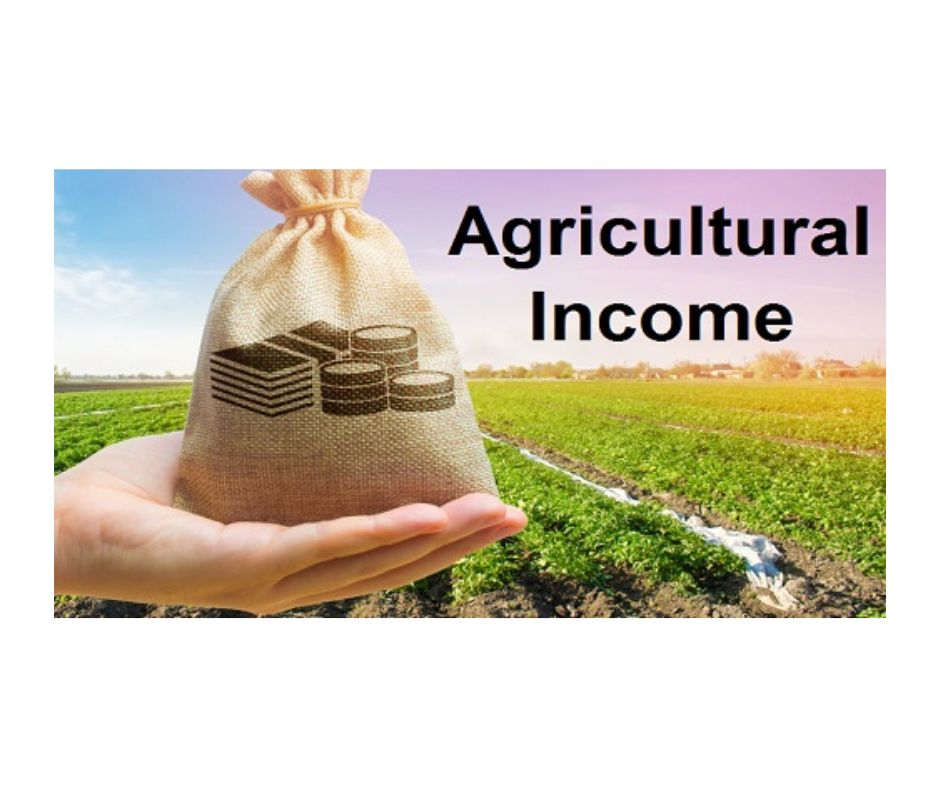

User Intent
Users searching for this topic want to understand why agricultural income in India is exempt from taxation. They seek clarity on its legal definition, applications, benefits, limitations, and comparisons with other taxable incomes.
Introduction
Agriculture is the backbone of India’s economy, employing nearly half of the population. To support farmers and rural development, the Indian government has exempted agricultural income from income tax. This exemption has been a subject of debate, with concerns about tax evasion and fairness. In this article, we explore the reasons behind this exemption and its broader implications.
Definition of Agricultural Income
According to Section 10(1) of the Income Tax Act, 1961, agricultural income includes:
- Revenue from agricultural land – Income from farming, harvesting, and selling produce.
- Rent or lease from agricultural land – Earnings from leasing out land for farming.
- Income from farm buildings – Earnings from structures essential to agricultural operations.
This means any income generated through genuine farming activities is tax-free in India.
Application of Agricultural Income Exemption
The exemption applies to:
- Farmers and agricultural landowners – They do not pay income tax on farm earnings.
- Companies and cooperatives engaged in farming – If registered as agricultural entities, they are exempt.
- Renters of agricultural land – They do not pay tax if they use the land for farming purposes.
However, if agricultural produce is processed beyond a basic level (like packaging and branding), the income becomes taxable under business income.
Benefits of Agricultural Income Tax Exemption
This exemption provides several advantages:
1. Financial Relief for Farmers
Farmers, particularly small and marginal ones, face unpredictable weather and market fluctuations. Tax exemptions help them reinvest earnings into their farms.
2. Encourages Agricultural Growth
Since income from farming is non-taxable, it motivates people to engage in agriculture, boosting rural employment and food security.
3. Supports Rural Economy
Agriculture-based economies rely on farmers’ income to sustain local businesses, labor, and infrastructure development.
4. Protects Farmers from Unstable Earnings
Unlike salaried individuals, farmers do not have fixed incomes. Taxing agricultural income would add financial stress, discouraging them from continuing in farming.
Limitations of Agricultural Income Exemption
While beneficial, this policy also has some drawbacks:
1. Tax Evasion and Money Laundering
Many high-income individuals misuse this exemption by showing business profits as agricultural income to avoid taxes.
2. Unfair Advantage Over Other Sectors
Non-agriculture professionals and businesses pay taxes, whereas large agribusinesses enjoy exemptions. This creates economic inequality.
3. Loss of Government Revenue
With over 50% of the workforce engaged in agriculture, exempting their income results in significant revenue loss for the government.
4. No Distinction Between Small and Large Farmers
Even wealthy individuals owning large farms benefit from this exemption, whereas small farmers, who truly need support, often struggle due to lack of structured policies.
Comparative Table: Agricultural vs. Non-Agricultural Income Taxation
| Criteria | Agricultural Income | Non-Agricultural Income |
|---|---|---|
| Taxability | Exempt under Sec 10(1) | Taxable as per slabs |
| Primary Earners | Farmers, landowners, agribusinesses | Salaried individuals, business owners |
| Government Revenue Contribution | None | Significant |
| Scope of Misuse | High (Tax Evasion Possible) | Low (Strict Regulations) |
| Sectoral Growth Impact | Encourages Agriculture | Growth depends on economic policies |
| Social Fairness | Unfair to other sectors | Equally applicable to all |
Conclusion
The exemption of agricultural income from taxation is a double-edged sword. While it protects farmers and promotes rural development, it also allows tax evasion by non-agricultural entities. Instead of a blanket exemption, a progressive tax system could be introduced, ensuring only small and marginal farmers benefit, while large agribusinesses contribute fairly to the economy.
Frequently Asked Questions (FAQs)
1. Is all agricultural income tax-free in India?
Yes, genuine agricultural income is exempt under Section 10(1) of the Income Tax Act, 1961.
2. Can businesses claim tax exemption by showing agricultural income?
Many misuse this exemption, but the Income Tax Department has measures to check fraudulent claims.
3. Will the government ever tax agricultural income?
While proposals have been made, no concrete plans exist due to political and social implications.
4. Does agricultural income include processed food sales?
No, if the produce undergoes value addition (like processing, branding, or packaging), it becomes taxable business income.
5. Who benefits most from this exemption?
While small farmers benefit, large agribusinesses and wealthy landowners gain the most.

To visit: https://www.incometax.gov.in
Whatsapp:Â Â https://wa.me/918130555124
Mail ID:Â Â Â Â Â Â operations@vibrantfinserv.com
Web Link:Â Â https://vibrantfinserv.com
FB Link:Â Â Â Â Â Â https://fb.me/vibrantfinserv
Insta Link:Â Â https://www.instagram.com/vibrantfinserv2/
Twitter:Â Â Â Â Â Â https://twitter.com/VibrantFinserv
Linkedin:Â Â Â https://www.linkedin.com/in/vibrant-finserv-62566a259/
For further details visit:Â https://vibrantfinserv.com/service-detail-25.php